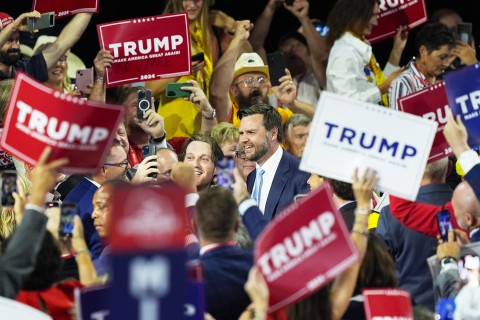In move to the right, bishops choose Dolan
In a dramatic break with tradition, U.S. Catholic bishops elected New
York archbishop Timothy Dolan as their next president, choosing a
friendly but assertive leader over the more conciliatory front-runner.
Dolan
defeated Bishop Gerald Kicanas of Tucson, Arizona, 128 to 111 in the
third and final round of voting. Kicanas has been vice president of the
U.S. Conference of Catholic Bishops, traditionally a stepping stone to
the presidency, since 2007, when he defeated Dolan by two votes.
The
election November 16 at the bishops' meeting in Baltimore marks the
first time since the 1960s that a sitting vice president was on the
presidential ballot and lost the election, according to church
historians.
Noting also that two conservative candidates led the
voting for vice president, observers said the election shows that the
bishops' conference is moving sharply to the right—with consequences not
only for Catholics but also for politicians who court a crucial swing
vote.
Read our latest issue or browse back issues.
"This is a signal that the Catholic bishops are going to be
leaders in the culture wars," said Thomas Reese, an expert on the
American Catholic Church and a senior fellow at the Woodstock
Theological Center at Georgetown University.
Archbishop Joseph
Kurtz of Louisville, Kentucky, the bishops' point man on defending
traditional marriage, won the race for vice president, defeating another
outspoken conservative, Denver archbishop Charles Chaput, 147 to 91.
"This
is a sign that the bishops want to shake off the era of moderate
liberalism, which didn't seem to confront any issue with passion or
conviction," said Russell Shaw, a former spokesman for the bishops who
was observing the assembly. "Dolan is a real leader, a man of
conviction."
Dolan, who was named archbishop of New York last
February, assumed the helm of the 300-member bishops' conference at the
conclusion of the three-day meeting.
A bearish, ruddy backslapper,
Dolan said he has not had time to ponder the significance of his
surprise election—but proposed that the deciding factor may have been a
difference in persona, not politics. "When you speak about the
leadership of bishops, usually you're speaking about style," he said,
noting that both he and Kicanas are orthodox advocates for Catholic
doctrine.
Criticism of the soft-spoken Kicanas had been mounting
in recent weeks as sexual abuse victims accused him of failing to stop
the ordination of a priest who was later convicted of sexually abusing
teen boys. Conservative Catholic bloggers labeled him weak on abortion,
gay marriage and other social issues.
Chaput said he received a
"huge number" of e-mails critical of Kicanas, especially his handling of
sexual abuse by Catholic clergy. But both Chaput and Dolan said bishops
typically dismiss such orchestrated campaigns.
"The bishops usually bristle if they feel any outside pressure," Dolan said. "We take our autonomy very seriously."
In
a statement, Kicanas said, "I respect the wisdom of my brother bishops
in choosing their new president and vice president" and praised Dolan's
"great wit" and "jovial spirit." Privately, though, Kicanas is
"disappointed," said a source close to the bishop.
In keeping with
tradition, Dolan is expected to be named a cardinal, but not in a
scheduled consistory at the Vatican since his predecessor, retired
Cardinal Edward Egan, still holds a vote in a papal election until he
turns 80 in 2012.
While Dolan's election puts a friendly face
front and center at the bishops' conference, Dolan is known as a strong
advocate for church teaching. Also he has become more of a culture
warrior since moving to New York, taking on the New York Times in particular over its coverage of sexual abuse in the church. —RNS





